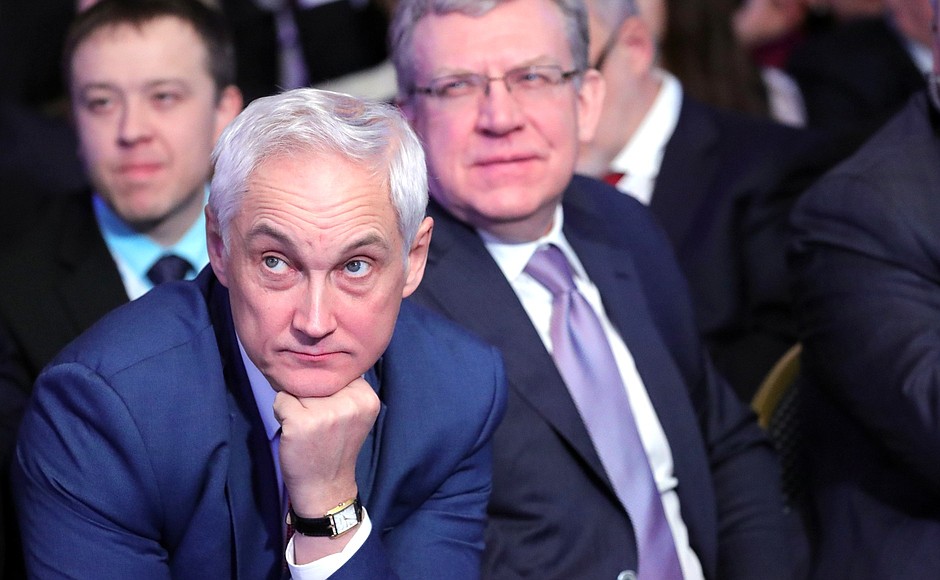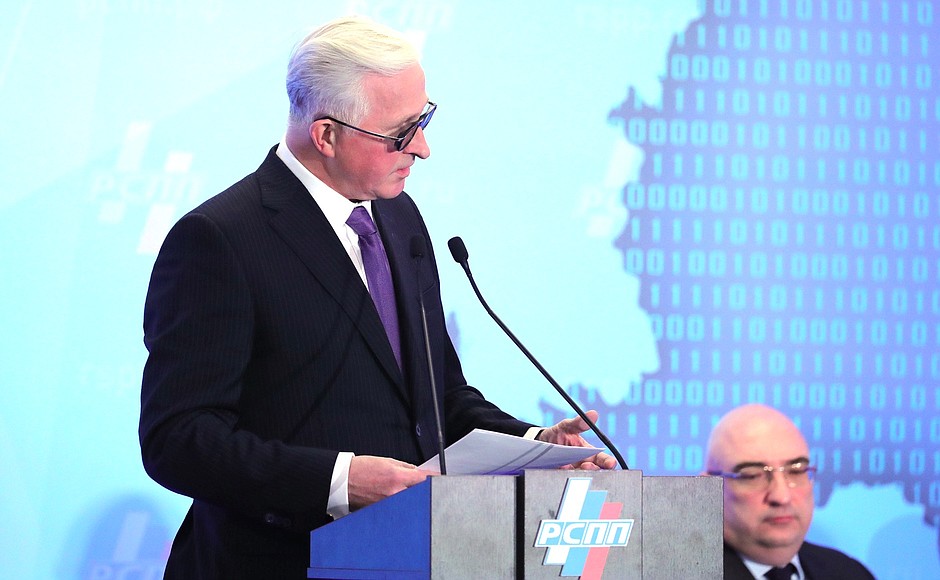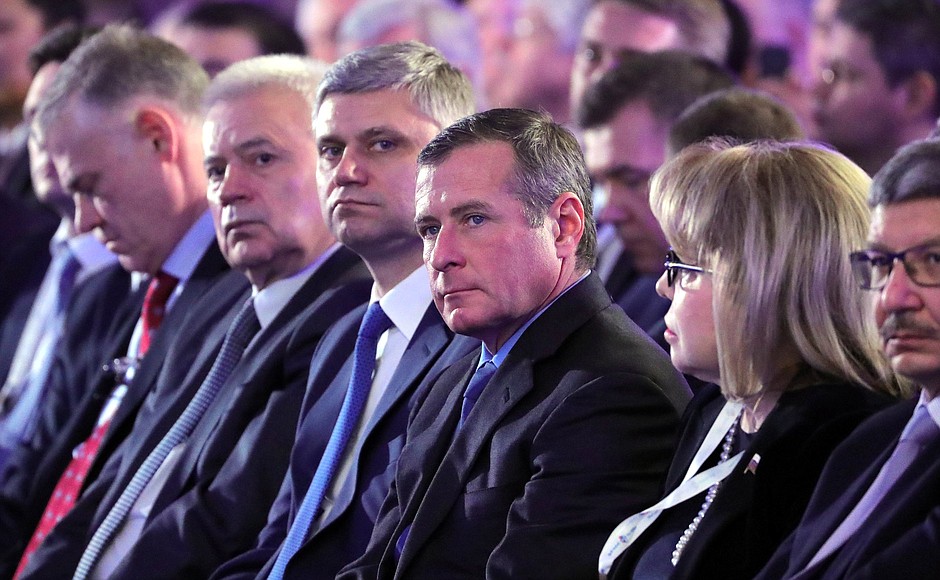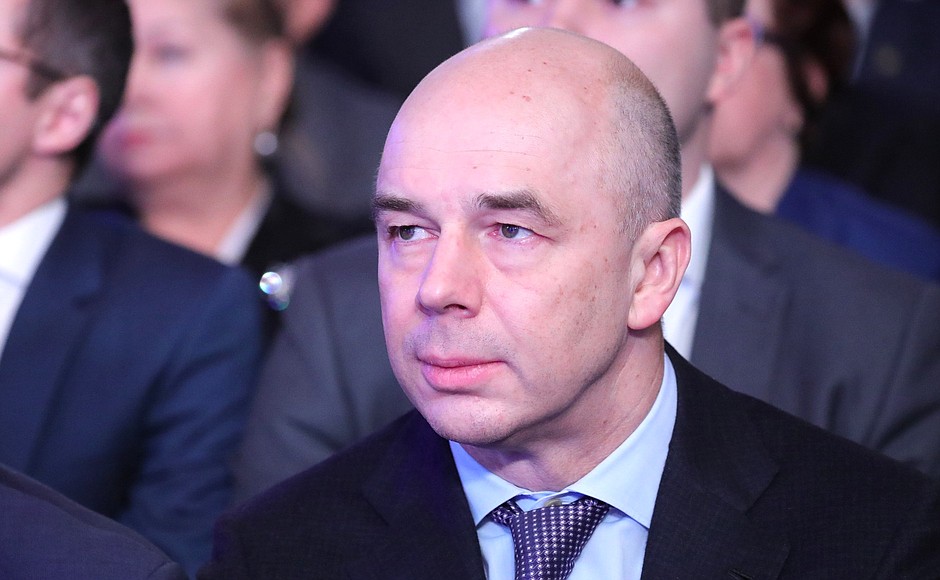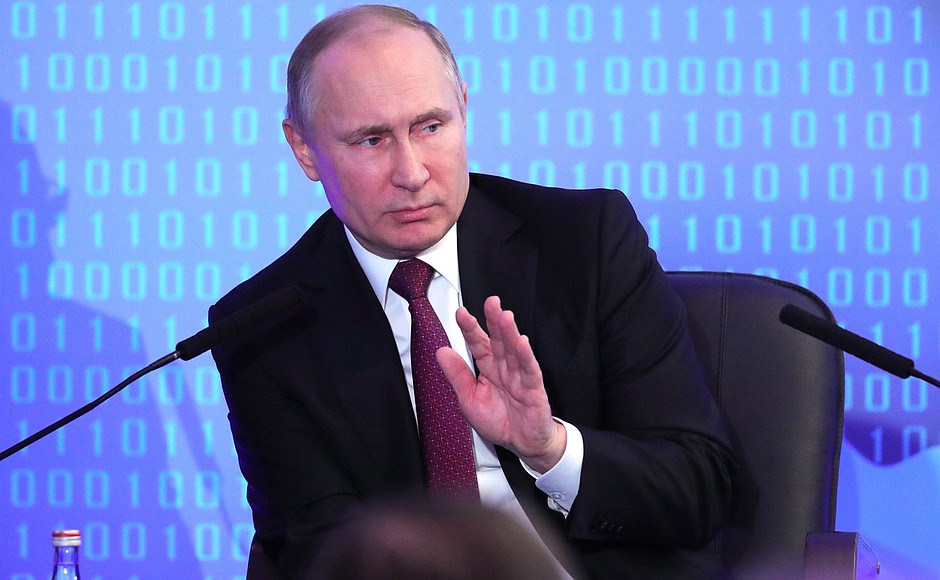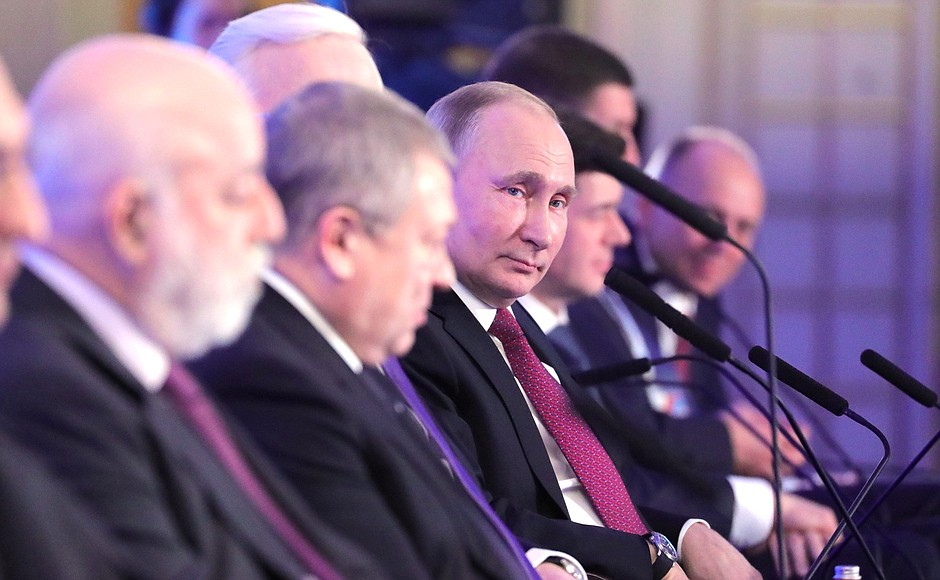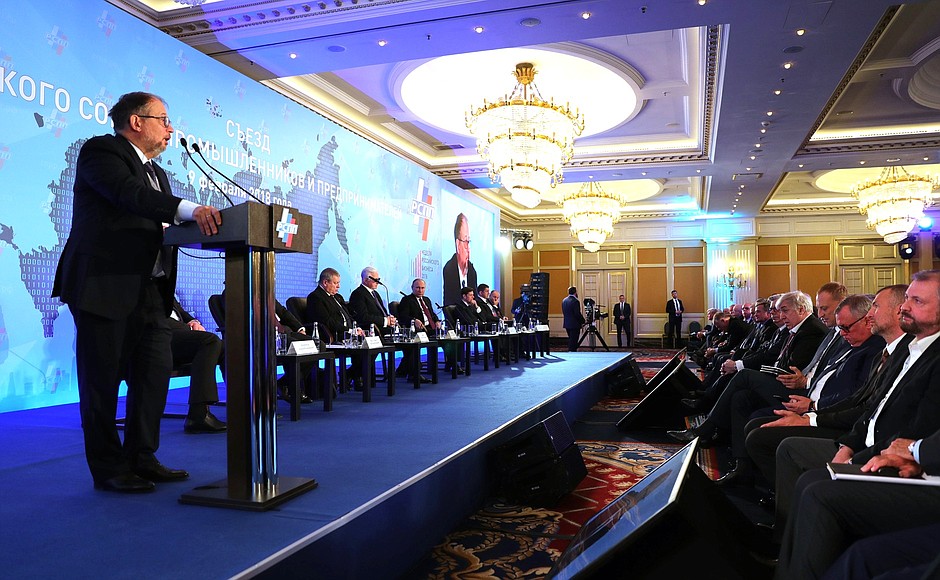The Congress agenda includes issues pertaining to reducing administrative barriers, streamlining state control and promoting competition, stimulating investment activity, boosting labour efficiency and ensuring effective cooperation between businesses and the authorities.
The congress is held during the 11th Russian Business Week organised by the Russian Union of Industrialists and Entrepreneurs on February 5–9.
* * *
Speech at a plenary session of the Russian Union of Industrialists and Entrepreneurs Congress
President of Russia Vladimir Putin: Good afternoon, friends, colleagues, ladies and gentlemen. Thank you for the invitation.
First of all, I would like to greet all participants and guests of the Congress of the Russian Union of Industrialists and Entrepreneurs. This respectable association traditionally takes a proactive and constructive approach to topical economic issues.
You are not merely participants in a discussion. You cooperate directly with the Government and make on-point proposals on the most pressing issues facing entrepreneurs, including such matters as customs regulation, streamlining oversight and control, professional development and legislative decisions to improve the business and investment climate.
Russia is entering a complicated, tense and critical period of its development. Our success and the results we can reach largely depend on the business community’s efforts.
With the direct involvement of the Russian Union of Industrialists and Entrepreneurs, in late January trade unions, the Government and employers signed a master agreement that determines the development of social and labour relations in Russia for the next three years.
I met with many of those present here last December to discuss the national economy and foreign markets. We spoke of the Russian business community’s concerns and how to make Russia more competitive and attractive for foreign businesses.
Let me say once again that at the end of last year we adopted several decisions aimed at supporting and developing business. For example, the law regulating syndicated loans has come into force; taxation rules for income from controlled foreign companies have been changed; and parameters for Russian bonds in foreign currency are being developed.
Today the State Duma has approved in the third reading a number of draft laws on capital amnesty. Essentially, we are starting the second stage of this amnesty, which will last for one year, from March 1, 2018 to February 28, 2019.
Many of you know that we had consultations on this issue with international financial organisations, which understand this and support us in this decision.
I believe this step towards Russian business will give it additional stability and create new opportunities for those who want to work in Russia honestly and in a civilised way and to create new companies and new jobs here.
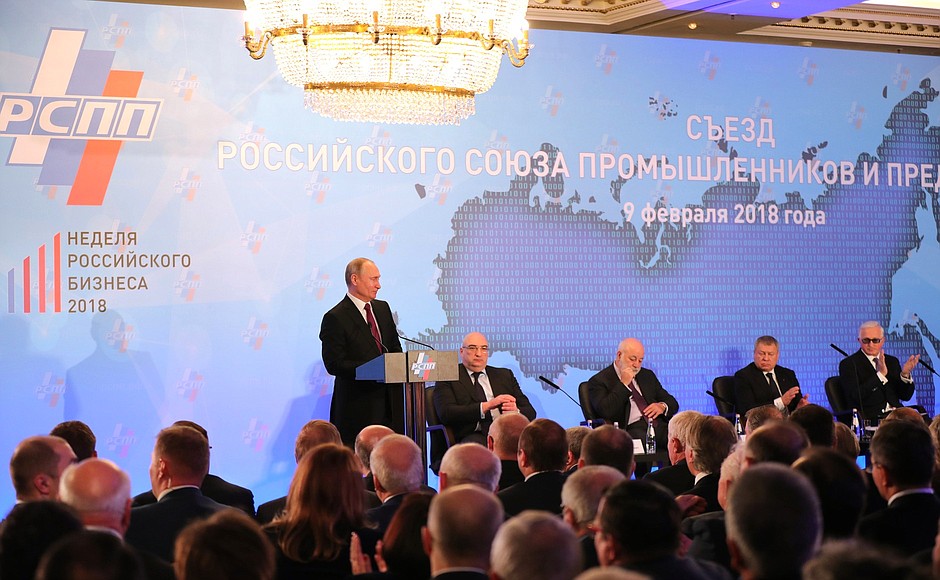
Colleagues, Russia is entering a complicated, tense and critical period of its development. Our success and the results we can reach largely depend on the business community’s efforts.
We all know about external limitations, I will not talk about this in detail. Let me only say that our position is well known: the policy of artificial barriers in international business relations leads to a dead end, which brings everyone, including those who initiated this policy, to lost profits and direct loss. I must say I can see from our communication that your colleagues from other countries share this point of view.
Recently, as you know, there was a meeting with French business leaders. I spoke by phone with the President of France about this earlier. In general, we have a positive view of what we can do together with France, as well as with other countries, to develop our business ties.
As you are aware, the policy of restrictions has been in place for a very long time now, always, in fact. The “Magnitsky Act” was adopted without any substantiation on the day the Jackson-Vanik amendment was repealed. This was long before the events in Ukraine or Crimea. They did so just because that is their preferred way of dealing with us.
To reiterate, I think that they will soon get tired of it. Still, I do hope that we will eventually get back to having normal relations.
We need to go beyond that and discuss how innovative technology reshapes the global economy landscape. This is the most important thing. If I may put it this way, the cards are being dealt anew today. Fundamentally fresh markets for goods and services will become available, and new leaders will appear as well.
Naturally, competition will exacerbate. Clearly, in a situation like that, no one will be playing fair with their competitors, including in the global business environment. All kinds of pressure or competition may come in handy.
The policy of artificial barriers in international business relations leads to a dead end, which brings everyone, including those who initiated this policy, to lost profits and direct loss.
Clearly, the sanctions challenge is not something of a fleeting nature and will, most likely, remain in place for some time. To reiterate, I still hope that common sense will prevail, and we will move together with all our partners in the right direction in the interests of global economy.
I believe the requisite base for such growth, including macroeconomic stability, has been created. Thanks to the joint actions of the Government and the Central Bank, we managed to achieve low inflation, maintain state reserves at the proper level, and enter a downward trend in interest rates. It is important to take advantage of the opportunities offered by the current situation, and to implement them in full.
I have said more than once that boosting the national economy’s efficiency and increasing productivity based on modern technology and competencies is the key driver of economic growth. Here, the leading role belongs to you, business people.
We will continue to improve the business climate in Russia, to create a comfortable environment for investment in innovative production sites and new high-quality jobs, to remove regulatory barriers, and to develop infrastructure. Of course, we will reshape the system of professional training and higher education to fit the needs of our industry, agriculture, and other industries.
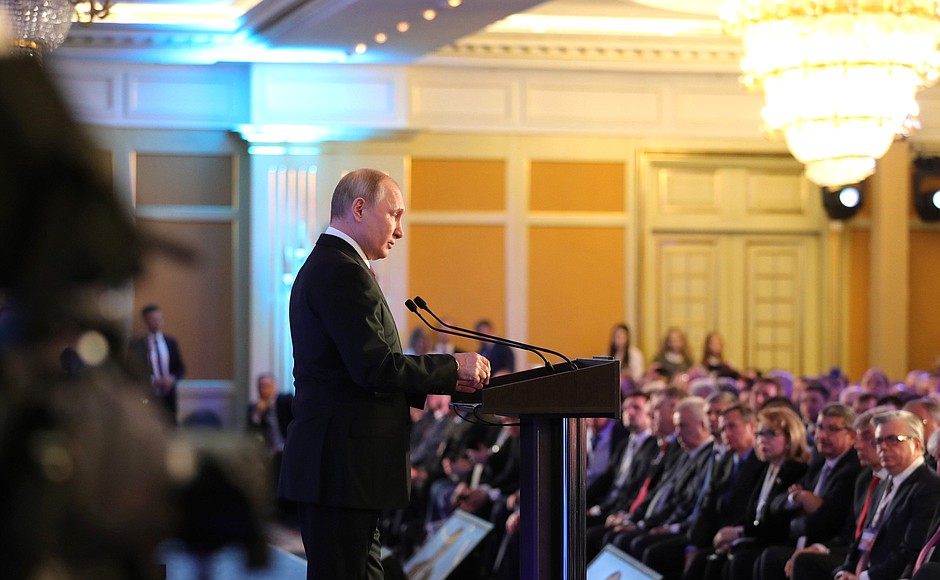
I plan to discuss these matters in more detail in my Address to the Federal Assembly. Today, it will be my pleasure to listen to what you have to say about ways to organise our future work.
Thank you very much.
<…>
